ECAS – SFdS course 2025: Towards Reliable Machine Learning
Transfer & Physics Informed Learning, and Conformal Prediction
December 1-5, 2025 – La Villa Clythia – CAES du CNRS, Fréjus, France
Main topic
Over the past decades, major research efforts in statistical and machine learning algorithms have enabled them to exploit large datasets. As a result, they are now used to support high-stakes decision-making in areas such as medicine, energy, or civic applications, to name just a few. Various recent waves of work aim at empowering them with novel techniques to make them more reliable, therefore ensuring their safe deployment and adoption by society. In this course, we will focus on two such tools: transfer & physics informed learning, and conformal prediction.
Transfer & physics informed learning aim to leverage various knowledge to implement efficient models with an economy of data. In order to produce an accurate model in an targeted environment, Transfer learning addresses the critical challenge of domain shift between the two data distributions used to train and to use the model. Physical machine learning models propose to introduce physical knowledge into the cost function of the machine learning optimisation procedure.
Conformal prediction (CP) is a versatile statistical procedure for distribution-free finite sample post-hoc uncertainty quantification: it associates predictive sets with any prediction model. Unlike existing probabilistic prediction methods, CP is highly promising as it offers theoretical guarantees with finite sample size, under the sole distributional assumption that the data are exchangeable (i.e. the data distribution is invariant to permutation, a weaker assumption than independence with identical distribution).
Some experience in programming with Python is a plus but not a prerequisite. No prior knowledge on transfer & physics informed learning nor conformal methods are required. The course will be taught in English and will start with the basics and end with the most recent and advanced methods like CP for time series. Methodological aspects will be covered as well as applied and computational aspects.



















